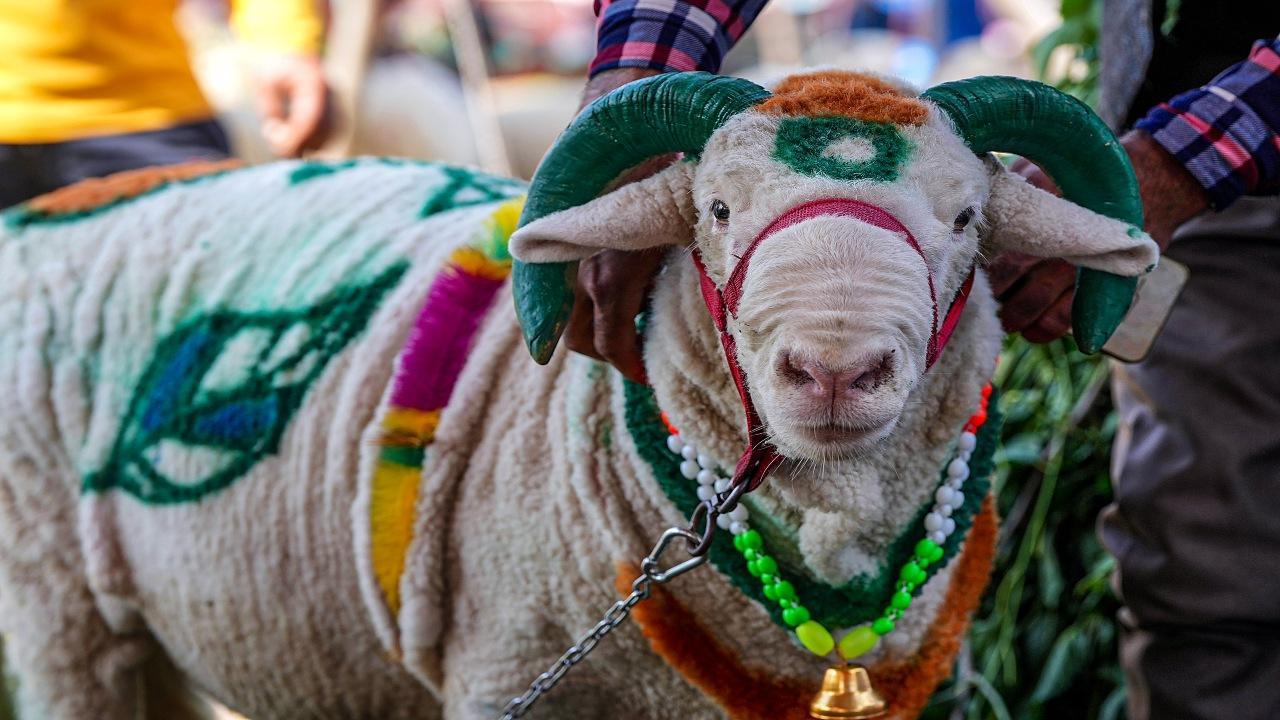Eid al-Adha, also known as the Festival of Sacrifice, is one of the most significant religious holidays celebrated by Muslims worldwide. It commemorates the willingness of Prophet Ibrahim (A.S) to sacrifice his son as an act of obedience to Allah. However, as Ibrahim prepared to sacrifice his son, Allah provided a ram as a substitute.

A sheep at a livestock market, ahead of the Eid-al-Adha festival, in Srinagar, Monday, June 26, 2023. PTI Photo
Eid al-Adha, also known as the Festival of Sacrifice, is one of the most significant religious holidays celebrated by Muslims worldwide. It commemorates the willingness of Prophet Ibrahim (A.S) to sacrifice his son as an act of obedience to Allah. However, as Ibrahim prepared to sacrifice his son, Allah provided a ram as a substitute.
ADVERTISEMENT
During Eid al-Adha, Muslims perform the act of Qurbani, which involves sacrificing an animal, typically a sheep, goat, cow, or camel. The sacrificed animal is chosen with care, and it should be in good health and free from any defects. The act of Qurbani is seen as a way to emulate the willingness of Ibrahim and his son to submit to Allah's command.
The purpose behind Qurbani goes beyond the mere act of sacrifice. It holds deep symbolic and spiritual significance for Muslims.
Here are some key reasons why Muslims perform Qurbani:
Obedience to Allah: Qurbani is a demonstration of obedience and devotion to Allah. It reflects the willingness to submit to Allah's commands and follow the example of Prophet Ibrahim.
Gratitude and Thankfulness: Qurbani is a way for Muslims to express gratitude to Allah for His blessings and provisions. By sacrificing an animal, they acknowledge the blessings bestowed upon them and share them with others, especially those in need.
Selflessness and Generosity: Qurbani encourages Muslims to be selfless and generous. The meat from the sacrificed animal is divided into three parts: one-third is given to the poor and needy, one-third to relatives and friends, and one-third is kept for the household. This practice promotes sharing and caring for the less fortunate.
Spiritual Cleansing and Atonement: Qurbani is considered a means of spiritual purification and seeking forgiveness from Allah. It is believed that the act of sacrifice purifies the individual's soul and brings them closer to Allah.
Unity and Community Bonding: Qurbani is a communal act, and it strengthens the bonds within the Muslim community. Muslims come together to perform the sacrifice, share the meat, and engage in prayers and celebrations. It fosters a sense of unity and solidarity among believers.
It's important to note that Qurbani is performed by Muslims who are financially able to do so and meet specific criteria. The meat from the sacrificed animal is distributed to those in need, ensuring that everyone can partake in the joy and blessings of Eid al-Adha.
Overall, Qurbani holds deep spiritual, social, and humanitarian significance for Muslims during Eid al-Adha. It reflects the values of obedience, gratitude, selflessness, and unity, while also serving as a reminder of Prophet Ibrahim's unwavering faith and devotion to Allah.
 Subscribe today by clicking the link and stay updated with the latest news!" Click here!
Subscribe today by clicking the link and stay updated with the latest news!" Click here!







